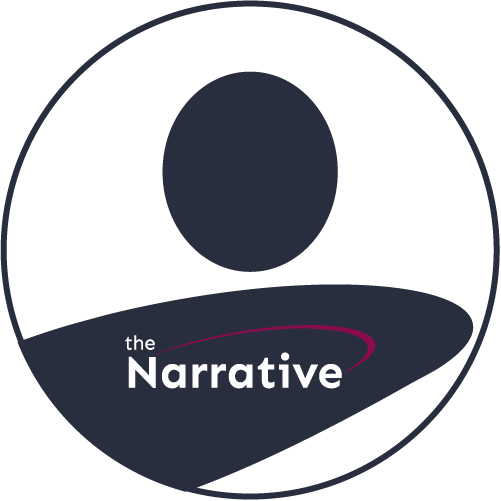
NAACCR RDU chairs are about more than just work! (Left) Jeff plays bass guitar with his band, Go Ninja; (Right) A very young Angela with her brother enjoying a hot air balloon event.
When I worked in central cancer registries, my NAACCR network kept me inspired both personally and professionally. One of the benefits of being NAACCR staff is that my NAACCR network grew and continues to motivate and guide me. I view these member ties as the biggest perk in our field, and these collegiate connections are only enhanced when we get to know each other on a personal level. So, in that spirit, I interviewed the Registry and Data Use Steering Committee (RDU) Chairs, Angela Meisner (New Mexico Tumor Registry) and Jeff Dowden (Newfoundland and Labrador Provincial Cancer Care Program), to help folks get better acquainted with them.
How did you get into the field of cancer surveillance?
Angela: Angela took a pre-med course as a senior in high school but couldn’t find a traditional clinical organization for her required internship. Somehow word got to her that “something called the New Mexico Tumor Registry” would take her, so Angela technically started in this field at the age of 17! Over the course of her internship, she fell in love with epidemiology and was inspired by her mentor, Noell Stone, to purse an MPH. Angela is still connected with Noell, still has her old intern badge, and things have gone full circle as she came back to the registry in 2010 and now supports the same internship program that introduced her to cancer surveillance.
Jeff: Jeff came into cancer registries from the field of math and statistics, with an initial focus in fisheries. When he graduated, he cast a wide net for job opportunities because he wanted to stay local, even though his province is fairly small. Because he was worried about limited job opportunities, he somewhat randomly applied for a health analytics job, which he happily got. Then he moved through a number of data analysis positions and learned about epidemiology along the way. Finally, in 2018 he took an epidemiologist job with the cancer care program, and cancer surveillance is a big part of his job.
Aside from work, what are you passionate about?
Angela: Her kids are her world. Right now, she serves on the Board of an organization called Talking Talons Youth Leadership, a program her youngest is involved in. This organization focuses on building youth leadership to develop a generation of leaders who will tackle issues related to climate change. Angela is excited about supporting this program because this earth is her children’s future.
Jeff: Professionally and personally, Jeff is passionate about helping people. First and foremost, his family is important, but he finds other ways to help and teach and contribute. In another life, he might be a teacher.
What is one fun fact about yourself?
Angela: Angela grew up in a drop zone as her dad was a recreational skydiver and a paratrooper in Vietnam. He was the first person in New Mexico to jump out of a hot air balloon, and he brought Angela to her first skydiving meet when she was just two weeks old. While Angela has never skydived, this upbringing helped her learn to just roll with it.
Jeff: Jeff plays bass in a cover band called Go Ninja. Music is in his DNA and has been a constant in his life. But he stopped focusing on music a decade ago, due to the loss of his father and the focus on his young family, and he wasn’t playing much until COVID hit. Like many of us, Jeff rethought his priorities during COVID, and he began to play again. So he answered an ad for a band looking for a bass player, and it was a natural fit. Go Ninja’s gigs are often wrapped around fundraisers, and you can follow them on Facebook!
What is your vision for RDU?
Angela: Angela is really excited about Epi “Hour.” Her vision for RDU is to increase network collaboration among registry analysts, and continue to build a strong community and promote all the great work RDU is doing.
Jeff: Jeff’s vision for RDU is to get the support RDU needs. He would like to highlight the role of data use and promulgate the idea that the value of cancer surveillance is not in data collection but in data use.
What to Read Next
Standardization and Registry Development Steering Committee: Modular Records Task Force
One of the NAACCR Board strategic initiatives in the Strategic Plan is Innovative Approaches to Data Collection (Minimal Datasets and…
Secondary data sharing: What is it, why is it important, and how is NAACCR involved?
Secondary data sharing (SDS) occurs when a primary researcher shares data with a secondary researcher to advance science. Sometimes the…
Reflections on the 2025 Annual Conference
Karen Knight, Executive Director of NAACCR, shares her reflections from the conference, with a call to leadership and working together…





